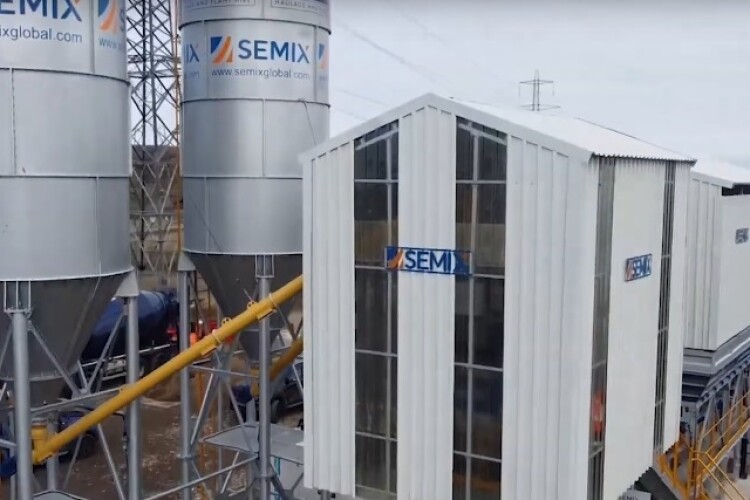
Family-run Scott Bros, in collaboration with Teesside University, has reduced its consumption of carbon-intensive ordinary Portland cement (OPC) by replacing up to 25% of the binding agent with a more sustainable alternative.
The substitute, known as ‘activated filter cake’ is a fine-grained clay by-product produced by Scott Bros’ wash plants that convert construction and excavation waste into high-quality commercial aggregate.
After several months of commissioning, the plant has already produced concrete blocks across a range of grades. Full-scale production is due to start in May, with the facility able to produce more than 480 cubic metres of low-carbon concrete per day, using the company’s recycled sand and gravel.
Scott Bros, which is headquartered at Haverton Hill, near Stockton, secured a £612,000 grant from Innovate UK, part of UK Research & Innovation, the government agency that sponsors industrial research & development. Scott Bros partnered with Teesside University’s School of Science, Engineering & Digital Technologies on the project to determine how much OPC could be replaced without compromising the strength and durability of conventional concrete.

Scott Bros is continuing its collaboration with the university to investigate further reductions in OPC usage, including the development of alternative binding agents.
Innovate UK operating and monitoring officer Joss Newberry said: “Two key aspects of this project really stood out. The first is the urgent need to decarbonise the economy, and the second is Scott Bros’ expertise in the recycling sector, strengthened by its long-standing partnership with Teesside University. It’s fantastic to see the concrete plant nearing commercial production — a great example of how the innovative use of waste materials is helping drive progress towards net zero goals.”
Scott Bros director Peter Scott said: “Achieving a 25% reduction in OPC is a significant milestone in our mission to create more sustainable construction materials. We’re continuing our work with Teesside University to explore further opportunities for innovative, low-carbon alternatives using recycled waste. Our long-term ambition is to eliminate OPC entirely and produce concrete made solely from recycled and sustainable materials.”
David Hughes, associate dean in Teesside University’s School of Computing, Engineering & Digital Technologies, said: “This new facility marks a major milestone in the journey from academic research to real-world application. It’s the culmination of seven years of collaboration with Scott Bros, transforming waste materials into valuable, low-carbon construction products.”
Got a story? Email news@theconstructionindex.co.uk
#Scott #Bros #unveils #carbon #concrete #plant